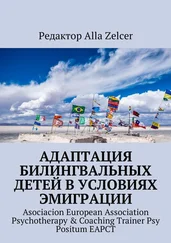James Walsh - Psychotherapy
Здесь есть возможность читать онлайн «James Walsh - Psychotherapy» — ознакомительный отрывок электронной книги совершенно бесплатно, а после прочтения отрывка купить полную версию. В некоторых случаях можно слушать аудио, скачать через торрент в формате fb2 и присутствует краткое содержание. Жанр: foreign_prose, psy_theraphy, foreign_edu, foreign_antique, на английском языке. Описание произведения, (предисловие) а так же отзывы посетителей доступны на портале библиотеки ЛибКат.
- Название:Psychotherapy
- Автор:
- Жанр:
- Год:неизвестен
- ISBN:нет данных
- Рейтинг книги:4 / 5. Голосов: 1
-
Избранное:Добавить в избранное
- Отзывы:
-
Ваша оценка:
- 80
- 1
- 2
- 3
- 4
- 5
Psychotherapy: краткое содержание, описание и аннотация
Предлагаем к чтению аннотацию, описание, краткое содержание или предисловие (зависит от того, что написал сам автор книги «Psychotherapy»). Если вы не нашли необходимую информацию о книге — напишите в комментариях, мы постараемся отыскать её.
Psychotherapy — читать онлайн ознакомительный отрывок
Ниже представлен текст книги, разбитый по страницам. Система сохранения места последней прочитанной страницы, позволяет с удобством читать онлайн бесплатно книгу «Psychotherapy», без необходимости каждый раз заново искать на чём Вы остановились. Поставьте закладку, и сможете в любой момент перейти на страницу, на которой закончили чтение.
Интервал:
Закладка:
Suffering from all these ills (which remind one of a modern literary man who has got his mind on his stomach and his body on his mind), Aristides went to a number of the old temple hospitals and received suggestions in sleep from AEsculapius. These he has described in what are called his sacred orations. In them we have every phase of modern therapy that has the strong element of suggestion in it. Like Pfarrer Kneipp, he tried very cold baths and was benefited by them. Walking in the dewy grass in his bare feet was another recommendation that had come to him in a dream. Occasionally he would run rapidly for a considerable distance, and then when heated plunge into a cold bath. We have many complaints of his fever and stomach troubles. Mud-baths were also recommended to him and, of course, tried with benefit for a time. Sand baths later proved to be beneficial. For rheumatism a cold bath, after running almost naked in the cold north wind, proved successful when other remedies failed. Aristides wrote out his experiences, and his writings had great influence over generations of patients and maintained the influence of the old Greek temples as cure houses long after the general acceptance of Christianity. As the result of his writings, no matter how bizarre a dream might be, some interpretation of a therapeutic nature was found from it.
Constancy of the Law of Personal Influence.—Indeed, there has apparently never been a time when some strong character, full of religious enthusiasm and of high purpose, strong in the confidence of men, has not succeeded in accomplishing wonderful curative results by the reassurance that comes from a renewal of faith in the goodness of Providence. There are, for instance, a number of stories which show John Wesley's power to help men to tap the reservoir of surplus energy that all of us have within us, but that somehow we do not succeed in making use of, unless some strong mental influence is brought to bear on us. Practically every religious man who has had the love and the veneration and the respect of those around him has succeeded in accomplishing the cures that many people in recent years have been prone to regard as rather novel phenomena in the history of psychology. Men like St. Philip Neri, St. Francis Xavier, and St. Francis of Assisi, and St. Bernard, have many stories told of them which show how much they were able to help fellow mortals by enabling them to make use, even in a physical way, of their own highest and best powers. Their lives show how much more they did.
Nor is this power confined to men. In nearly every century we have the story, also, of wonderfully strong women, leaders of their time, who inspired the profound confidence and veneration of those around them, and who were enabled, by their own strength of character, to help people physically as well as morally. The Life of St. Catherine of Siena is full of such instances. She spent her life mainly in caring for the sick and the distressed at the hospital in Siena, and the beautiful hospital there was completed largely as a monument to her. During her lifetime marvelous cures occurred that in many cases were evidently due to her power over the minds of people. The life of St. Teresa has a number of similar examples, and Joan of Arc, in her lifetime, lifted many a dispirited man into vigorous strength because of her own abounding personality and the physical reaction which contact with her enthusiasm brought.
Modern Examples.—Nor did such occurrences come only in older and less sophisticated centuries than ours. John Wesley is close enough to our time to negative any such impression, but there are many other examples. There is Pastor Gassner, whose cures remind Prof. Münsterberg of the Emanuel movement at the present time, but there are also a number of strong, religious characters whose influence was exercised in the alleviation of physical ills during the nineteenth century. The name of Father Matthew, the Irish "Apostle of Temperance," as he was called, is mainly connected with wonderful cures of the worst forms of alcoholic addiction. Physicians know how difficult such cases are to cure, yet there are many thousands of what were apparently hopeless cases to Father Matthew's credit. It may be remarked that this is one of the ills that modern mental treatment claims most success with. Besides these morbid habits there are, however, other cases, told in detail, in which Father Matthew's influence enabled people to shake off headaches, to get rid of illusions, to overcome hysteria, and even to relieve other and much more physical affections. Animal magnetism was the subject of much thought in his lifetime (nineteenth century), so that it is not surprising that Mr. John Francis McGuire, a member of the English Parliament, who wrote Father Matthew's life in 1864, declared that "Father Matthew possessed in a large degree the power of animal magnetism, and great relief was afforded by him to people suffering from various affections; and in some cases I was satisfied that permanent good was effected by his administrations."
Another strong man of this same kind was Prince Alexander of Hohenlohe. Though a prince he had become a clergyman and spent his life in the service of the poor. Shortly after he became a priest he went through a great epidemic, fearlessly caring for his poor people, and as a consequence inspired them with so much confidence that ever after they came to him with all their ills. He was able to help, not only the poor, but also many of the nobility. Some of the things reported as accomplished through his influence show extraordinary power. His usual method was to endeavor to inspire in the people who came to him a faith in their cure, and then after a time the cure was actually accomplished.
During the recent troubles in Russia, attention was called to the fact that the famous Father John of Cronstadt, the hero of Bloody Sunday, was looked up to with so much respect and veneration that many people found themselves helped physically by contact with him. There are a number of interesting stories of cures of ills of various kinds, some of them exclusively mental, but many of them fundamentally physical, which took place as a consequence of the new spirit of hope infused into people because of their confidence in Father John. His subsequent history seems to indicate that this was evidently due to the forceful personality of the man rather than to any special religious influence. His influence was not limited to the ignorant masses in Russia, for some of the cures reported occurred in families of the better class, thoroughly capable of judging the character of the man apart from his religion.
SUCCESS IN HEALING
We have any number of examples, then, of this power of the healer in history. Over and over again we find that it was the personality of the man and the suggestive value of the means that he employed that enabled patients to cure themselves, that is, to use all the vital force which they had for curative purposes. This force had hitherto been inhibited by their own doubts of themselves and their doubts of the value of all ordinary means of cure which had been previously employed in their cases. This is the secret of the success of the healer, and this secret is much more valuable for therapeusis than any remedy which has come down to us from the olden time. It has, unfortunately, been neglected, and thus an important benefit to humanity has been lost. Now that we are able to review frankly and deliberately the conditions that obtained in the past, it is time to set about making use of this oldest secret in medicine, now no longer a secret, as a strong factor in the treatment not of disease but of patients.
Healers are at all times strong characters who are helpful to others because of their own superabundant strength. The world is made up of two classes of people, lifters and leaners, and the leaners constitute by far the larger class. Most men and women are the subjects of doubts and dreads and difficulties with regard to their health, and the more time they have for introspection, the more are they likely to suffer. Unable to overcome them by themselves, they need the help of others. What they need, above all, is the reassurance that a trained strong mind can give them. The exercise of this mental influence over them, is only what corresponds to leadership in all the affairs of life. Most people need to be led and to be guided. The place of the physician is that of guide and director. The family physician of the olden time had a precious amount of influence that accrued to him from his character, and it was used to magnificent purpose. Most of his drug treatment would be looked upon as quite absurd at the present time, yet he did a great good work by lifting people up to their own highest possibilities of resistive vitality. That means more for the conquest of disease, even now, in most cases, than any remedies we possess.
Читать дальшеИнтервал:
Закладка:
Похожие книги на «Psychotherapy»
Представляем Вашему вниманию похожие книги на «Psychotherapy» списком для выбора. Мы отобрали схожую по названию и смыслу литературу в надежде предоставить читателям больше вариантов отыскать новые, интересные, ещё непрочитанные произведения.
Обсуждение, отзывы о книге «Psychotherapy» и просто собственные мнения читателей. Оставьте ваши комментарии, напишите, что Вы думаете о произведении, его смысле или главных героях. Укажите что конкретно понравилось, а что нет, и почему Вы так считаете.












